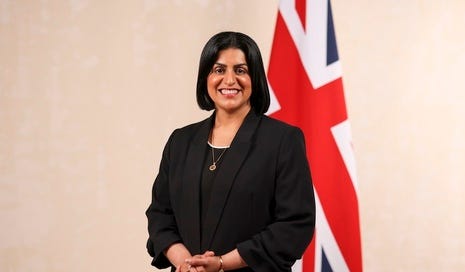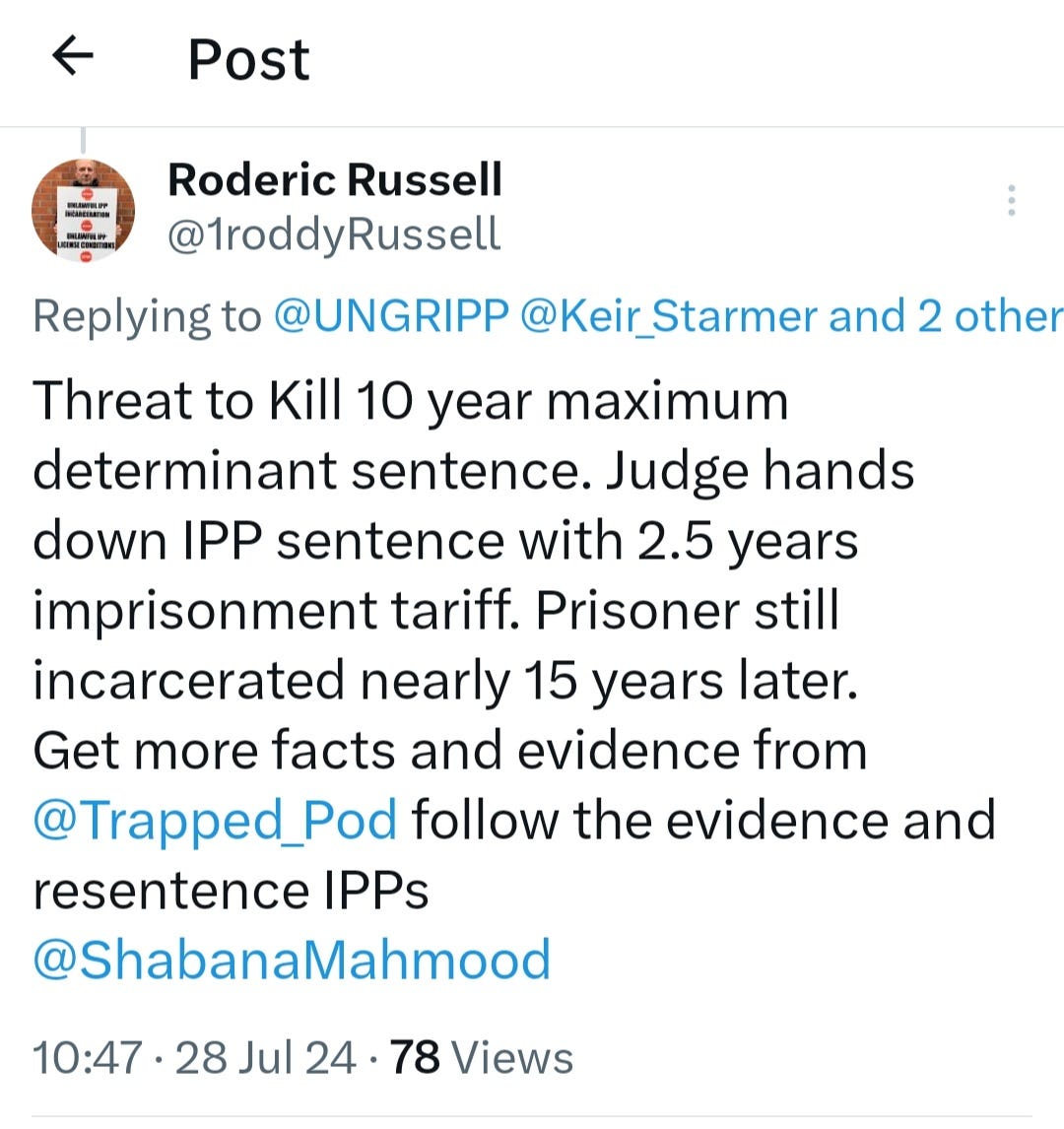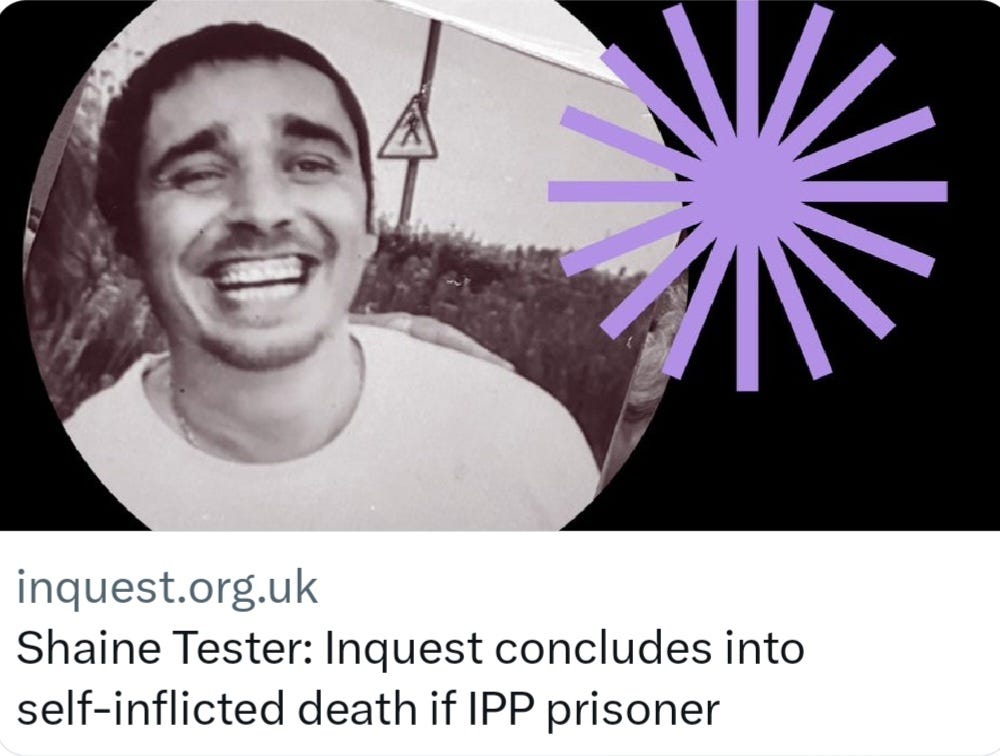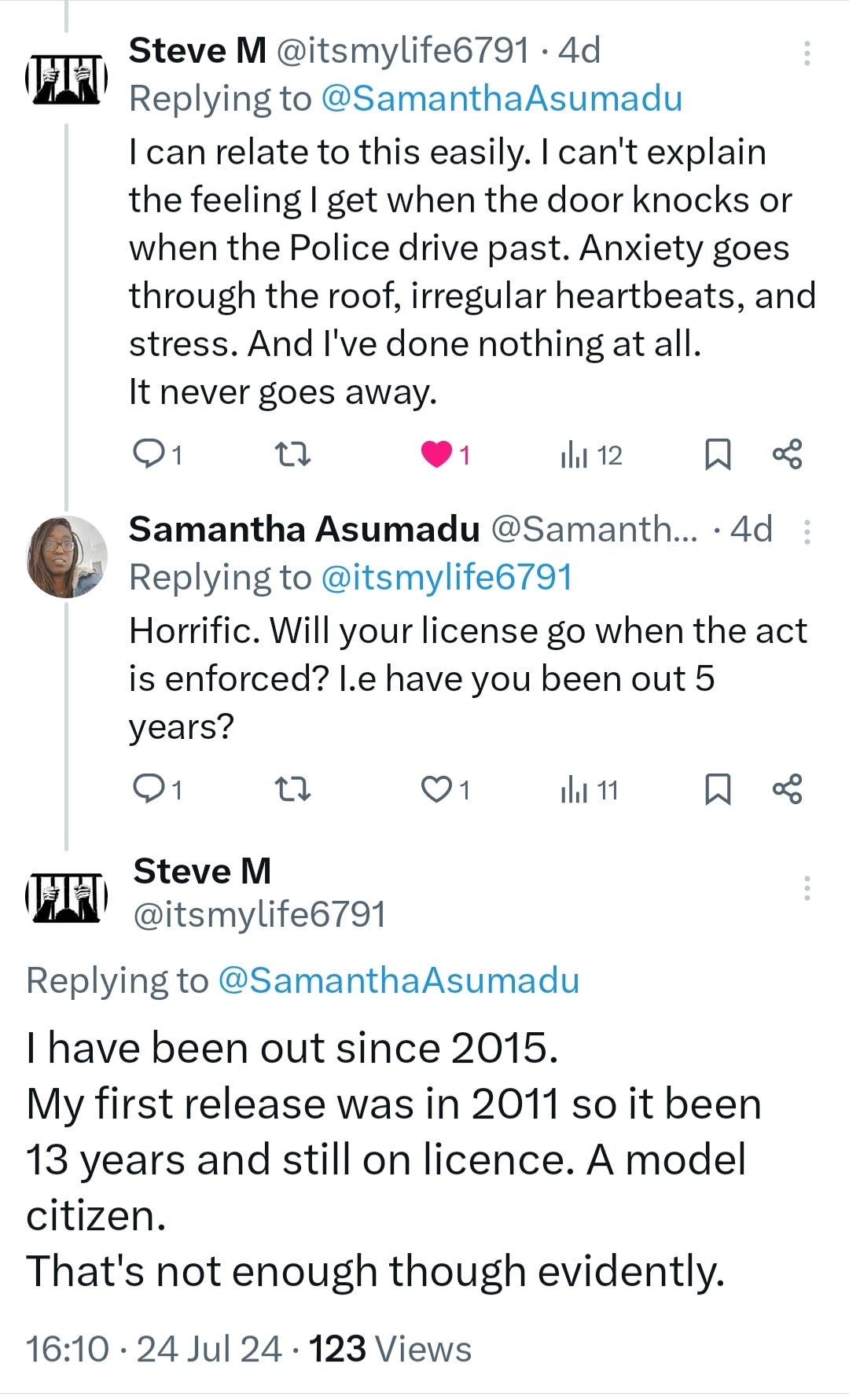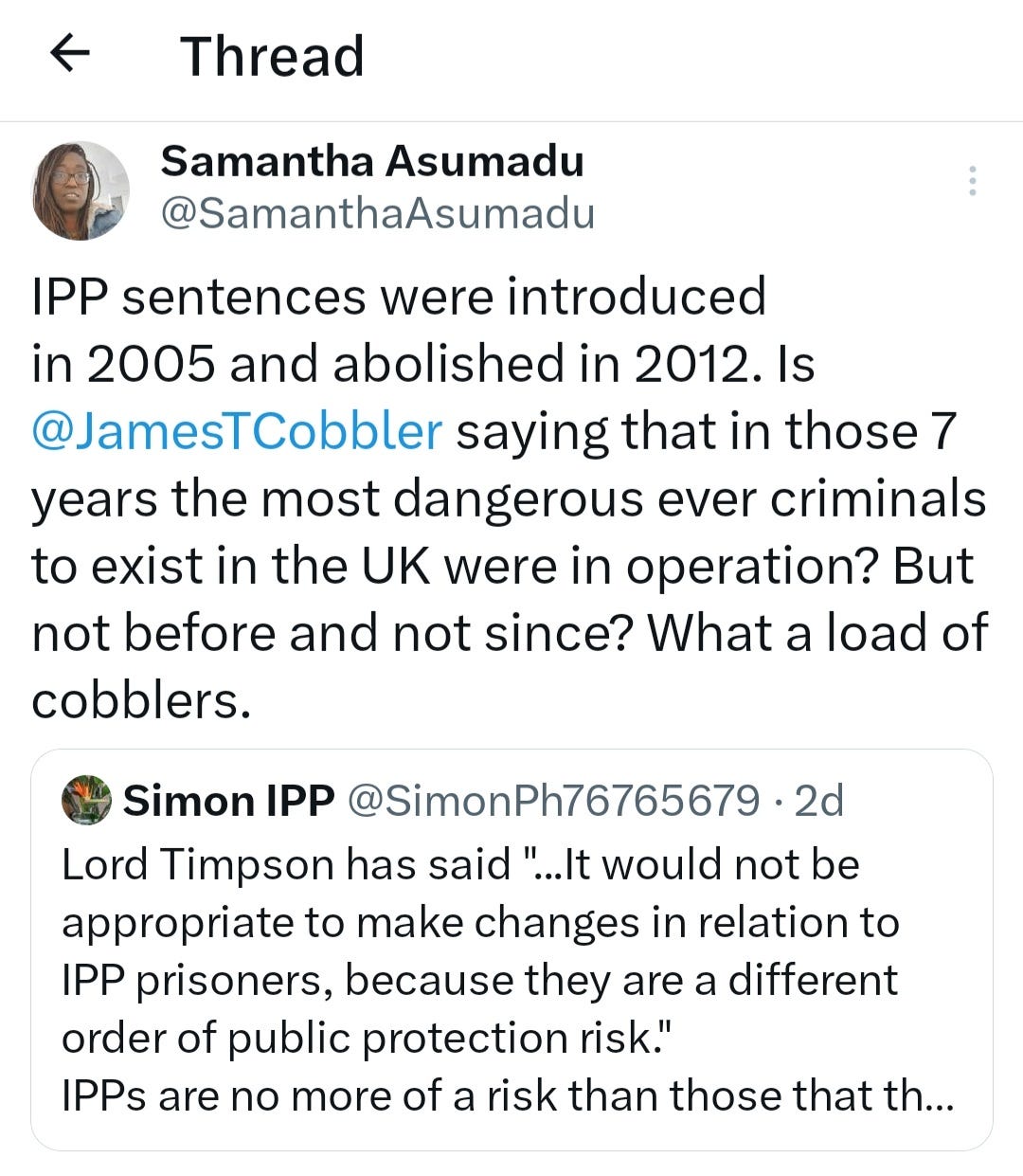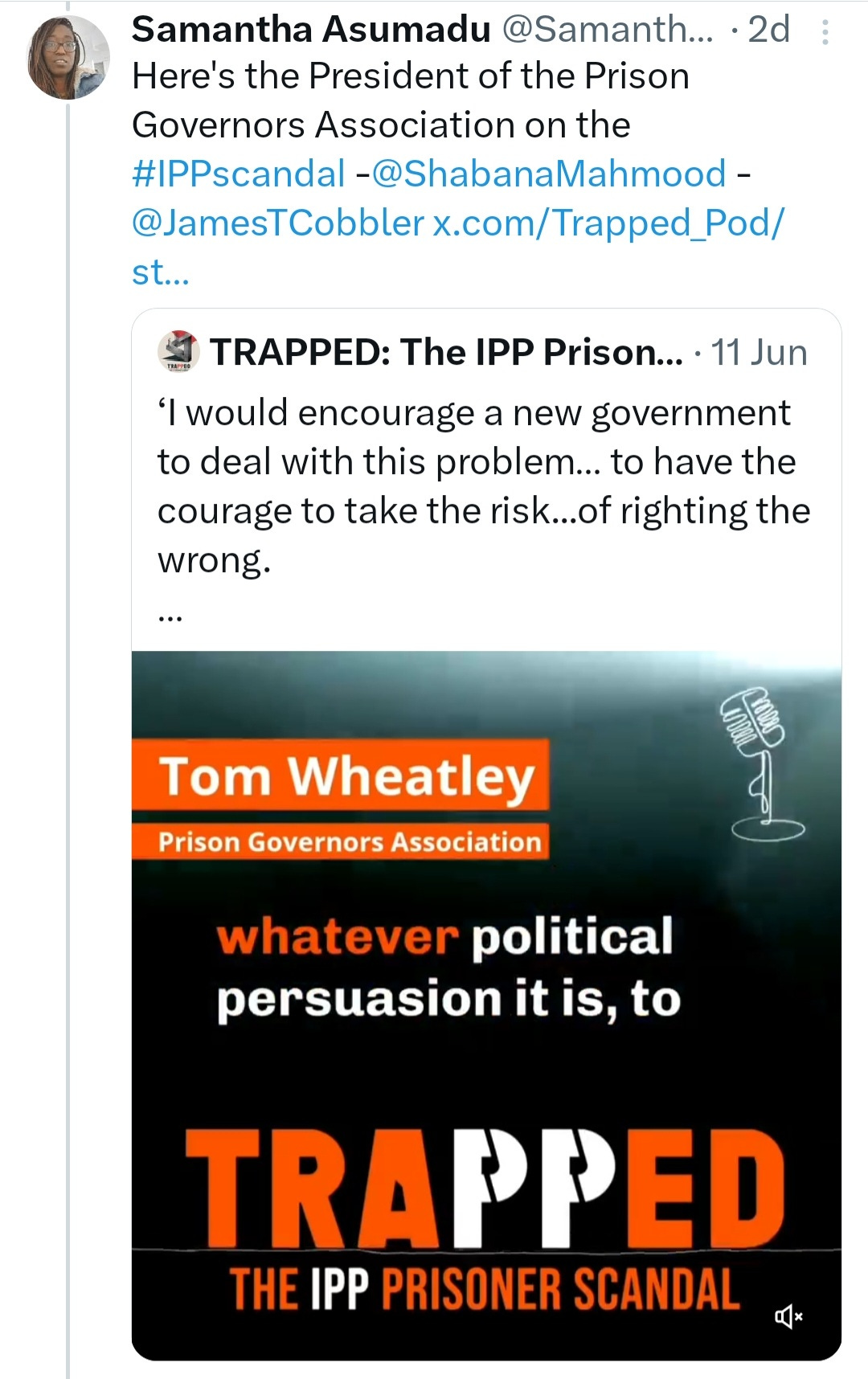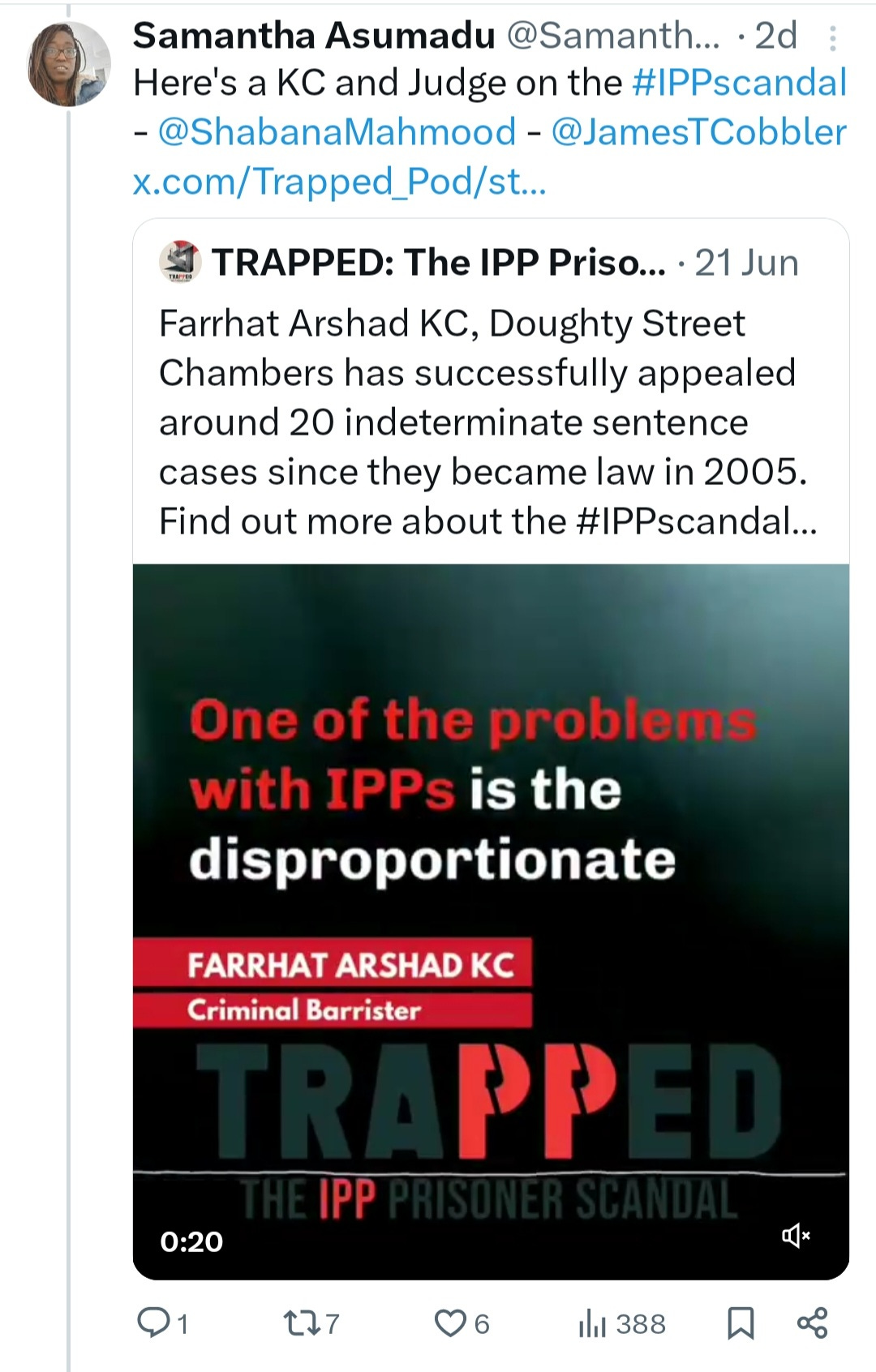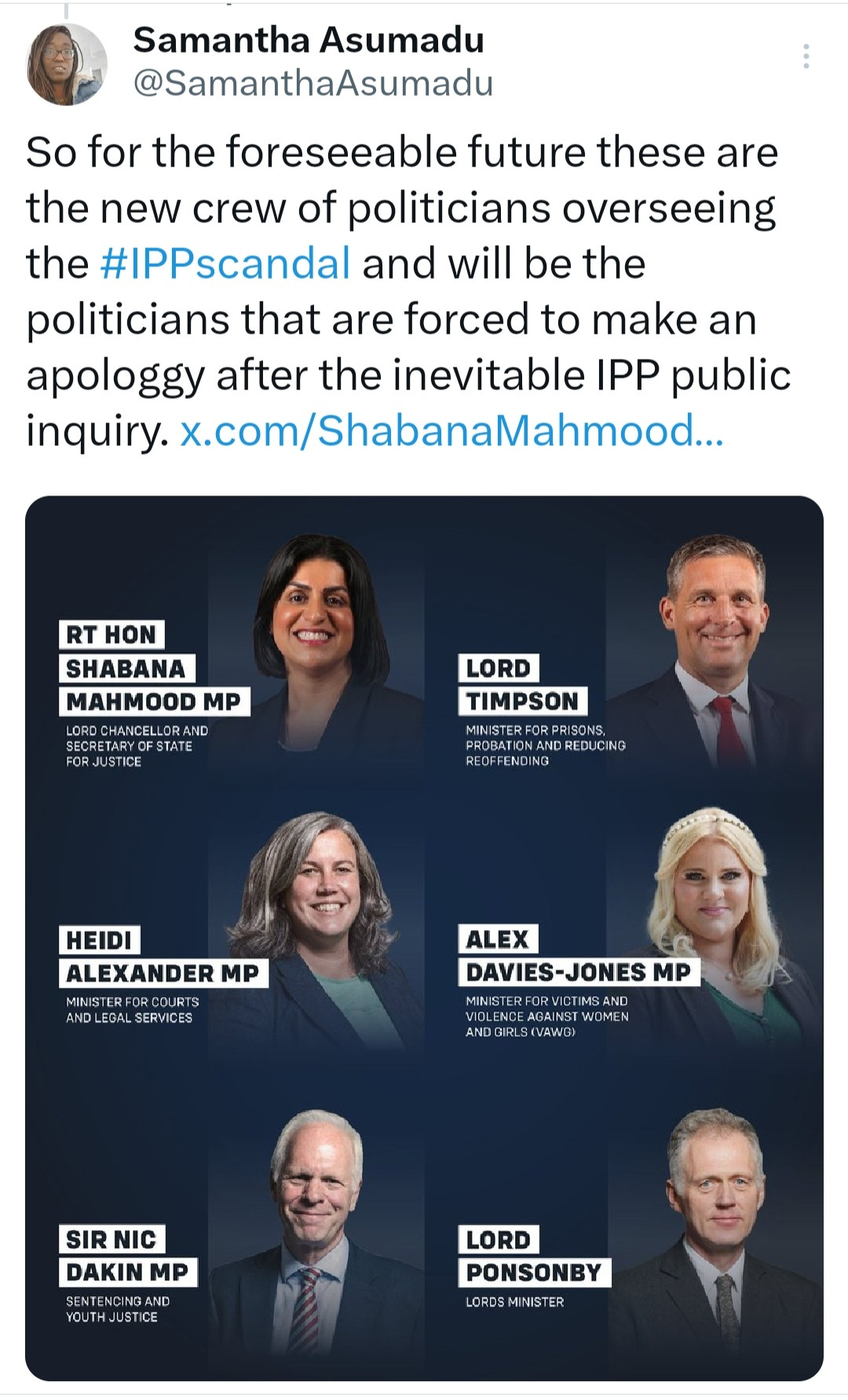When every person serving an IPP sentence has finally been released there will be many vivid newspaper headlines. It’s easy to predict when you speak to lifetime peers such as Lord Daniel Moylan who told me last year that, “nobody wants to take the risk of letting them out because then you get the newspaper headlines. You know, this person was released by DOMINIC RAAB or ROBERT BUCKLAND, they are the guilty man, you know, whoever was the secretary of state for justice at the time.”
The IPP or Imprisonment for Public Protection sentence was introduced in 2005 by the New Labour government. People sentenced to an IPP were given a minimum term but no maximum term. Initially offenders could be handed the sentence for any of 153 crimes or if they were deemed 'dangerous' by a judge.
Woolly legislation and limited discretion for judges meant that between 2005 and 2012 when it was abolished, thousands rather than the expected hundreds of offenders were handed the sentence. Some offenders, whose tariffs were as short as 12 months have spent far longer than the determinate sentence for their crime would have been.
Like Roddy's brother Robert Russell..
Nonetheless IPP sentences were given out for seven years. 2005-2012. Then it was abolished. So does that mean that the most dangerous people in the country were only operating in a seven year period? Not before or after? Shouldn't Imprisonment for Public Protection be reintroduced then?
There are currently 2796 men and women still languishing in English and Welsh prisons serving an IPP sentence. More than half of those are there on recall. Practically all of them are at least 10 years over their sentence tariff, some have been in prison 18 years longer than their original sentence.
Though their release is inevitable it will take a man or woman of steel to make that decision. Time will tell if newly minted Secretary of State for Justice and Lord Chancellor, Shabana Mahmood will be that woman and meet that challenge and whether it will be months rather than years.
In the meantime IPP prisoners and their families are dealing with the psychological effects of a sentence that is deemed to induce 'hopelessness' and 'desperation'.
Last year in a rare intervention into the UK’s affairs the United Nations released a statement. Dr Alice Jill Edwards, the UN special rapporteur on torture, said, "For many, these sentences have become cruel, inhuman and degrading… ". She has since gone on to publicly call for "reparations, rehabilitation and compensation" for those affected by these terrible miscarriages of justice”.
The last government gave a tepid respond. However In a roundabout way the UK is signed up to the United Nations' Optional Protocol to the Convention Against Torture, and other Cruel, Inhuman or Degrading Treatment (OPCAT). His Majesty’s Inspectorate of Prisons is one of the 21 statutory bodies that make up the UK’s National Preventive Mechanism, established in March 2009 when OPCAT was ratified, to meet it’s obligations. So the new Labour government are likely to find they will also need to respond to the Dr. if she activates further letters.
And why wouldn't she when in the last month one person serving an IPP sentence, who was 12 years over tariff, has set himself alight. Another begun his second hunger strike and in yet another inquest a jury concluded that Shaine, an IPP prisoner, described by family “as a loving and calm person”, died by suicide on 1 Nov 2022, at aged 34, after feeling ‘forgotten by the system’ due to his sentence and feeling he was being punished for his mental health.
Shaine’s mother Gaynor and brother Jack said:
“The past two years have been extremely difficult, and we are relieved that Shaine’s inquest has now concluded. We will continue to fight for justice for other prisoners who remain on IPP sentences and ensure that they will not be forgotten.
Shaine was extremely intelligent and had so much potential. He was a very gentle and quiet soul, who was looking forward to his future outside of prison. We miss Shaine every day, and I still can’t believe he is gone. Shaine made my life complete, and I will always be glad that I had the pleasure of being being his mum.”
Dr Edward’s letter to the government went on to say that IPP sentences ‘have been acknowledged by successive UK governments and even described as indefensible by a justice minister -- yet they persist.’
While the letter was addressed to the last government, and we have a new one as of the 5th July 2024, one can’t forget that in 2017 the recently departed Secretary of State for Justice, Alex Chalk KC when a mere MP wrote that, ”one of the greatest stains which contributes to these prison pressures remains the nearly four thousand prisoners serving sentences known as Imprisonment for Public Protection (IPP)... Society should not have a bleeding heart about its prisoners. But it shouldn’t have blood on its hands either’.
The blood he mentions is likely to be that of the 90 prisoners serving IPP sentences that have taken their own lives up to and including 2023.
There have been more this year.
According to the Independent Monitoring board there were three self inflicted deaths in the four weeks following the Tory government’s rejection of the cross party justice committee’s key recommendation to resentence all IPP prisoners in February 2023.
This year in both the House of Commons and in front of the cross party justice committee Alex Chalk as justice minister said the IPP sentence is a "stain on the British justice system." However to prisoners' distress and despite pleas from their family members Chalk dismissed a resentencing exercise.
His dismissal was not unprecedented. Before him, the previous justice secretary, Dominic Raab rejected many of the committee’s key recommendations, including resentencing and reducing the licence term. (IPP prisoners have a 99 year licence which comes up for automatic review to terminate after 10 years from release)
After alienating lawyers, the parole board and reportedly his own staff before being forced to resign in March 2023 one wonders if it might have been astute for the recently departed justice minister, to distance himself from more of former justice secretary, Dominic Raab's decisions.
Nonetheless Alex Chalk did go on to reverse Raab’s rejection of the licence period being halved to 5 years in late 2023.
Whilst this does not affect the plight of the 1,180 people who have never been released, it will give relief to those on licence who can be recalled to prison with immediate affect if they break a licence condition. The Ministry of Justice has estimated that between July 2021 to March 2026 significantly more IPP prisoners are expected to be recalled than released.
Campaigners and IPP prisoners on licence pleas to the Ministry of Justice, Shabana Mahmood and newly appointed Prisons minister James Timpson to enact the legislation passed in the Victims and Prisoners Act have grown louder in recent days as they fear being recalled to prison before the changes take place.
The vast majority of recalls to prison are not for commiting a further criminal offence. Indeed in parliament in May 2023, Alex Chalk said that, “Over 99% of prisoners authorised for release by the Parole Board do not go on to commit a so-called serious further offence”.
So one wonders why IPP serving prisoners are caught in this political trap, after all, all we have heard for the last weeks is that the prison estate is far over capacity.
Following a question in the last parliament it’s been revealed that there have been 31 suicides of IPP prisoners in the community on licence that the Ministry of Justice know of.
Speaking to Andrew Sperling and Emma McClure, lawyers at SL5 Legal over the last year, I learned that one of those 31 people was their client Matthew Price. He had been near or just over his 10 year IPP licence review date, when he took his own life.
The month before he died he wrote to the then Justice Secretary, the Prison’s Minister, Damien Hinds and the then chair of the Justice Select Committee Sir. Bob Neil and other Lords and MPs saying, ‘Even those on whole life orders or on any other sentence at least have a sentence that brings clarity for both victims and offenders of the sentence that's being served.
Even if they'd hung me there would have been a definite ending and clarity. The truth is that this long abolished IPP sentence has proved to be capital punishment through the back door in many cases with those who have seen taking their own lives as the only way out growing rapidly recently.’
Sir Bob Neil having gathered mountains of evidence in the IPP enquiry has a keen sense of what the sentence can mean. He told me when I spoke to him for the Trapped podcast, “Some of the evidence that we have heard does demonstrate, or certainly suggests to us very strongly from qualified and experienced psychologists in this field and psychiatrists, that there is frequently a link between an indeterminate sentence and a loss of hope, which in turn gives away to mental health issues, which can manifest itself either in self-harming or suicidal tendencies or a general sense of depression into which people can fall.”
When a torture expert weighed in, it seemed as if the recently departed, Justice Secretary, Alex Chalk would be boxed in. With a change in government he has been let off the hook and it will be Shabana Mahmood who will not only have to respond to Dr.Alice Edwards letters but to the still pending Prevention of Future Deaths Reports, for Matthew Price and Scott Rider issued by senior coroners earlier this year. Chalk did manage to answer one before departing, that of Francis Williams.
Campaigners hope that if Chalk reversed one decision of Raab’s, there’s no reason why Shabana Mahmood couldn’t reverse another. Especially with the United Nations breathing down her neck.
Last year, talking to politicians such as Lord David Blunkett and Lord Clarke, who was central to abolishing the sentence for Trapped: The IPP Prisoner Scandal one thing is clear, nobody envisioned that we would still be dealing in 2024 with legislation that was implemented in 2005 and abolished in 2012.
After the former government rejected the resentencing recommendation in 2023, Sir Bob Neil, chair of the committee said, "This is a missed opportunity to right a wrong that has left nearly 3,000 people behind.[..]We are not only disappointed with this government response but genuinely surprised. There is now a growing consensus that a resentencing exercise is the only way to comprehensively address the injustice of IPP sentences."
The ball i.e thousands of lives, is in Shabana Mahmood ’s court.
But as solicitor advocate and prison lawyer Andrew Sperling has pointed out, there are many guilty men that came before her.
“Gove was one of ten Tory justice secretaries to wring their hands but do nothing to address the IPP scandal. Clarke 2 years, Grayling 3 years, Gove 1 year, Truss 1 year, Lidington 1 year, Gauke 1 year, Buckland 2 years, Raab 1 year, Lewis 1 month, Raab 6 months, Chalk 15 months.”
In light of Lord Timpson saying this week in Parliament that, "I am well aware of the issues around indeterminate sentences for public protection...It would not be appropriate to make changes in relation to IPP prisoners, because they are a different order of public protection risk." (24 July, HoL) I took to the only forum that the public can directly speak to Ministers outside of their Constituency hours (if they even do them) and directed the Justice minister towards what I believe to be an air tight case as to why she should pull her finger out, enact the license provisions in the Victims and Prisoners Act and commence with a re-sentencing exercise which everyone from Lawyers, to Lords alike support.
Here's an abridged version:
You can read it on Twitter and the responses from supporters and some surprising detractors, here.
I've written a new article, something I started 2 years ago, about the Public Order Act and state surveillance. I hope to see it published next week in the press. It has first person exclusive interviews with spokespeople from Extinction Rebellion, Insulate Britain and Palestine Action. There's some commentary here about how hard it is as a black working class woman to get a commission, despite a long history of writing well received articles in places such as The Telegraph and The Guardian, plus being a finalist in two National Investigative Journalism awards, an Audio and Radio Award, plus my films.
Have a great week. I'm looking forward to getting started on Trapped:’s new Joint Enterprise investigative series tomorrow in Parliament.
For more info about the Campaigns for Justice for IPP prisoners go to: UNGRIPP website or Twitter @UNGRIPP and IPP Committee In Action or Twitter @ActionIPP
You can follow Trapped: The IPP Prisoner Scandal on Twitter , Instagram, Facebook or Tik Tok @Trapped_Pod for updates.

